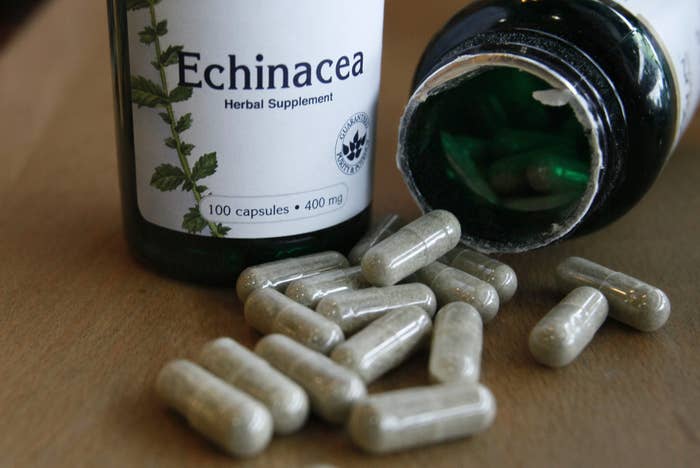The New York Attorney General's office confirmed Thursday that Target, Walgreens, GNC, and Walmart have agreed to pull from shelves the herbal supplements that the office found did not match their ingredient labels.
The attorney general investigation is ongoing.
But while experts agree that quality control of herbal supplements is a serious issue, the testing method used by the attorney general's office has drawn criticism.
The American Botanical Council released a statement saying that officials' use of DNA barcoding was particularly problematic for herbal supplements that relied on processed plant extracts, which can contain little or no plant DNA.
"The AG’s study is not based on adequate science and its actions are thus premature," the statement said. "The use of DNA barcoding technology for testing of the identity of botanical dietary supplements is a useful but limited technology."
The tests came from one laboratory that did not specialize in herb or medicinal plant research, the ABC added. Additional testing using other methods should be done to determine the accuracy of the findings.
“The action by the New York Attorney General is highly problematic,” ABC executive director Mark Blumenthal said in a statement. “We here at ABC are sympathetic with the AG’s obvious concern about the reported problems associated with adulteration of herbal ingredients in dietary supplements... We respectfully must question whether an appropriate level of scientific rigor has been applied in this case.”
The attorney general's office said their methods had been found valid by 70 published papers.
"The fact is virtually every product we tested includes ingredients not listed on the packaging, and close to 80 percent failed to show any evidence that they included even trace amounts of what was advertised," said a statement from the office. "This is ultimately a matter of public health, and when public health is at stake the burden is on this largely unregulated industry to prove what's in its products.”

Store-brand supplements at several major retailers did not contain the herbs they advertised or failed to list the ingredients they did contain, the New York attorney general said.
The state attorney general's office called for Walmart, Walgreens, GNC, and Target to immediately stop selling a number of generic supplements, a move that followed DNA testing of a number of popular herbal remedies.
Overall, just 21% of the tested store-brand herbal supplements actually contained the plant material they advertised, the attorney general's office said. The remaining 79% either didn't contain the herb or included other materials that weren't on the ingredients list.
"Mislabeling, contamination, and false advertising are illegal," New York Attorney General Eric Schneiderman said in a statement. "They also pose unacceptable risks to New York families — especially those with allergies to hidden ingredients."
GNC
*Authorities tested ginkgo biloba, St. John's wort, ginseng, garlic, echinacea, and saw palmetto from the store's Herbal Plus brand.
*Only garlic showed up consistently in the DNA test. Saw palmetto showed up in one of four bottles. The other supplements could not be found.
*In 22% of the tests, DNA matched ingredients listed on the label. In the rest, contaminants included asparagus, rice, primrose, alfalfa, spruce, ranuncula, allium, legume, saw palmetto, and echinacea.
Walmart
*Authorities tested ginkgo biloba, St. John's wort, ginseng, garlic, echinacea, and saw palmetto from the Spring Valley brand.
*None of the supplements consistently showed the DNA of the ingredient they were supposed to contain.
*DNA tests matched the ingredient label only 4% of the time. Contaminants included allium, pine, wheat/grass, rice mustard, citrus and cassava.
Walgreens
*Authorities tested ginkgo biloba, St. John's wort, ginseng, garlic, echinacea, and saw palmetto in the Finest Nutrition brand.
*Only saw palmetto consistently showed its labeled contents.
*DNA matched the labels' ingredients 18% of the time, and contaminants included allium, rice, wheat, palm, and daisy.
Target
*Authorities tested ginkgo biloba, St. John's wort, valerian root, garlic, echinacea, and saw palmetto from the store's Up & Up brand.
*Ginkgo biloba, St. John's wort, and valerian root did not show up consistently in the samples.
*DNA matched the labels' ingredients 41% of the time, and contaminants included allium, French bean, asparagus, pea, wild carrot, and saw palmetto.
